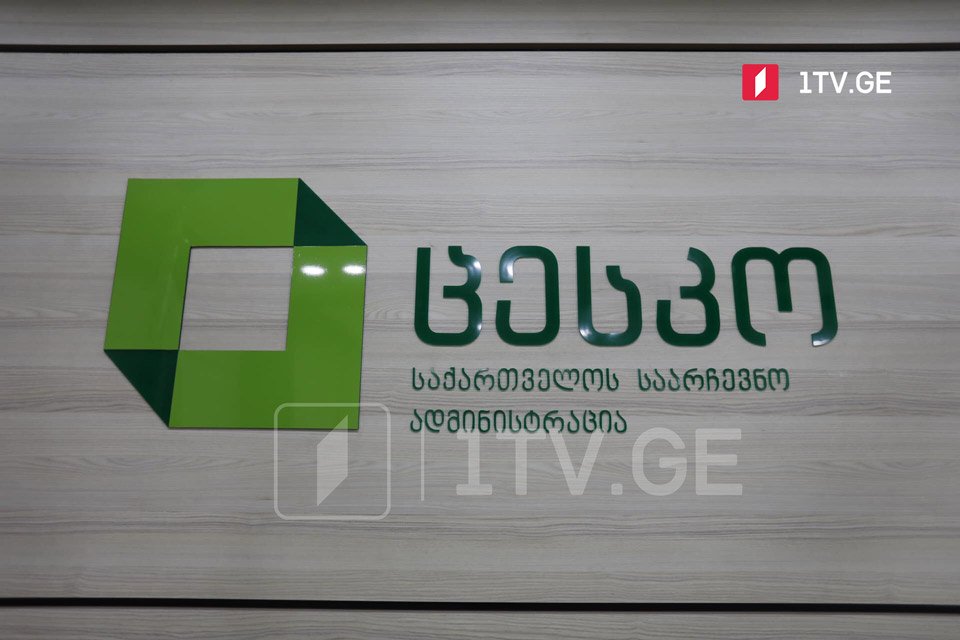
The Election Administration (EA) of Georgia on Monday released a statement regarding the NDI recommendations, saying the EA “actively continues the work to ensure the execution of the October 26, 2024 Elections with utmost professionalism.”
To ensure that the Parliamentary Elections adhere fully to international standards, particularly concerning the integration of electronic technologies, the EA is intensively studying the practices around the globe, alongside the perspectives and recommendations of esteemed international organizations,” it went on.
The National Democratic Institute (NDI) has already completed the first pre-election observation mission for the October 26 Elections, published the report, and developed recommendations for the Parliamentary Elections.
According to the report, “The CEC is a highly professional and competent election management body that has, in past elections, demonstrated its technical expertise to conduct election day processes in a generally orderly fashion and in accordance with Georgian law”.
The report comprises several recommendations concerning the CEC, about which we would like to provide information to the public.
Recommendation 1:
“The CEC should redouble its efforts to address any unsubstantiated rumors about the secrecy of the vote and work with all political parties and civil society to assure the public, including marginalized communities, that their vote is their secret through substantial voter education efforts”.
Preserving the confidentiality of the voting process stands as paramount for the Election Administration. Therefore, during the implementation of electronic technologies, after consulting with relevant stakeholders, a specific frame form was developed, along with guidelines for inserting the ballot paper into the vote-counting machine, to ensure vote secrecy. Moreover, ensuring the confidentiality of voting stands as a pivotal focal point within the Election Administration’s informational outreach endeavors.
Recommendation 2:
“The CEC should consider, as has been the case in other countries, conducting a nationwide test of new technologies that mirrors conditions of election day to further enhance public confidence”.
The EA started introducing electronic technologies in the election process in 2018. Until 2024, 8 (by/extraordinary) elections were held in pilot mode using electronic technologies.
Furthermore, it’s noteworthy that well in advance—almost a year and a half preceding the October 26 Elections—a comprehensive information campaign was initiated, drawing upon the best international practices. As part of this campaign, voters have the opportunity to personally acquaint themselves with the operation of electronic voting machines and engage in mock elections. In 2023, over 1,700 informational meetings were conducted nationwide, reaching approximately 150,000 voters. By the year 2024, up to 300,000 voters had been educated on the utilization of electronic voting technologies. Notably, among these, up to 122,000 voters actively participated in elections utilizing these new technologies. The awareness campaign is being conducted with even greater intensity this year.
Recommendation 3:
“The CEC should ensure the full participation of marginalized groups, especially ethnic minorities and persons with disabilities, in the elections by providing appropriate accommodations and voter education materials tailored to these groups’ needs”.
As for the recommendation regarding the full participation of ethnic minorities and persons with disabilities in the elections, the Election Administration carries out numerous activities in this direction.
Special groups working on the issues of ethnic minorities and persons with disabilities are established at the CEC, where representatives of organizations working on relevant issues are represented as members, and all-important issues are being discussed with them.
The following services are provided for their participation in elections: a frame form for blind voters assisting them to fill in the electoral ballot; magnifying lens for people with visual impairments; voting booths at polling stations adapted/accessible for wheelchair users; voting poster with QR code, in sign language for deaf people, and audio format for blind people.
On the CEC website, blind persons can independently check their data in the unified list of voters, during the election period, in the contact hub deaf persons can apply the services of an operator who communicates using sign language.
As for the representatives of ethnic minorities, they have an opportunity to verify their data in the unified list of voters, as well as receive contact hub operator services in Azerbaijani and Armenian languages during the election period. For their participation in the elections, the unified list of voters, the ballot, the rules for filling out the ballot paper, and the poster depicting the participation in the voting are also translated into ethnic minority languages.
Informational video clips are translated into ethnic minority languages and videos are provided with sign language interpretation.
Informational campaigns on the introduction of electronic technologies in the election process also include holding informational meetings in regions populated by ethnic minorities.
Recently, in cooperation with the International Foundation for Electoral Systems (IFES), a video was prepared about services for persons with disabilities. The video was also translated into the languages of ethnic minorities.
Recommendation 4:
“The CEC and the Ministry of Foreign Affairs (MFA) should provide greater transparency on the process for determining the location of polling stations outside of Georgia and facilitating, to the degree possible, voting access for citizens abroad”.
In this direction, the election administration acts in full compliance with the legislation and plans an active information campaign for voters abroad.
It should be underlined that the Election Administration will continue to consult with the National Democratic Institute (NDI) and other electoral stakeholders on all the mentioned recommendations to make sure there are no questions regarding the implementation of the recommendations.
To conclude, we would like to agree with the observation mission’s opinion and repeat the statement which once again confirms the fact that the elections are a common cause: “While the government has the responsibility for creating an enabling environment for elections and the CEC is the constitutionally mandated body for conducting elections, ultimately it is the responsibility of all election stakeholders, including all parties, civic organizations, and media, to show the country’s 4 commitment to democratic norms and ensure that the electorate is well informed and engaged ahead of elections.” – states NDI report.








